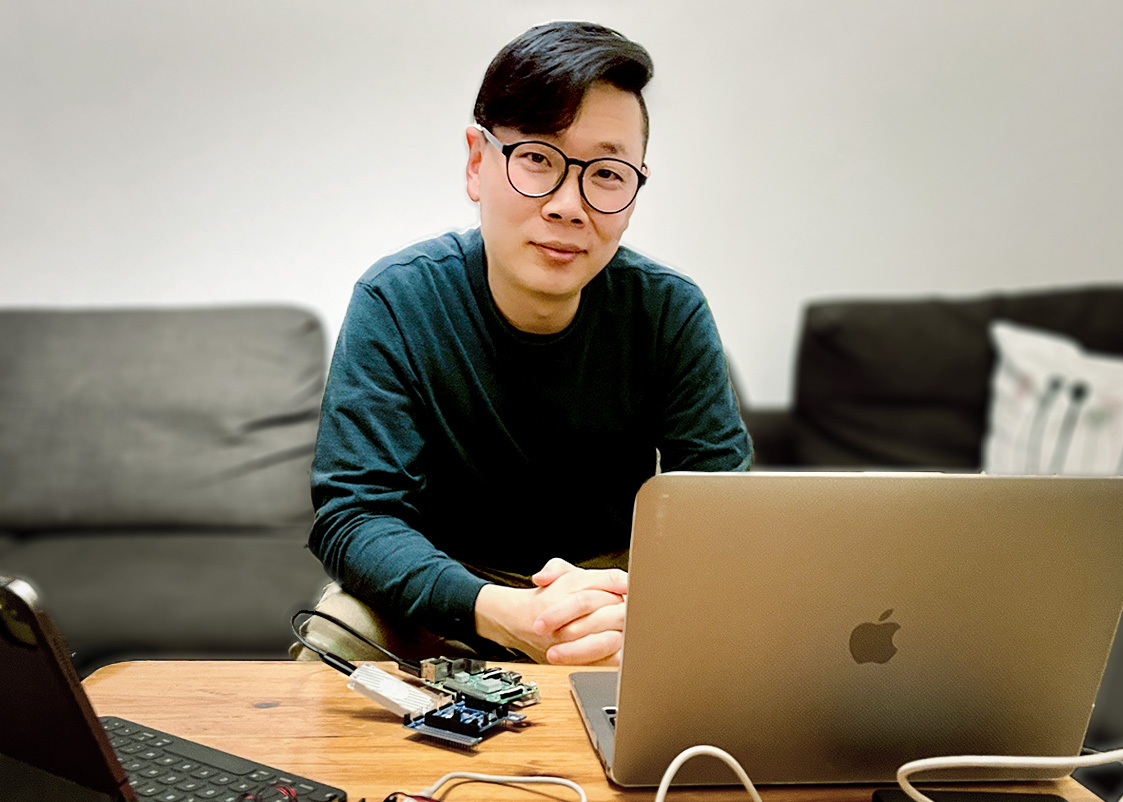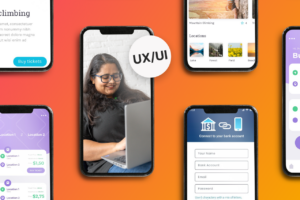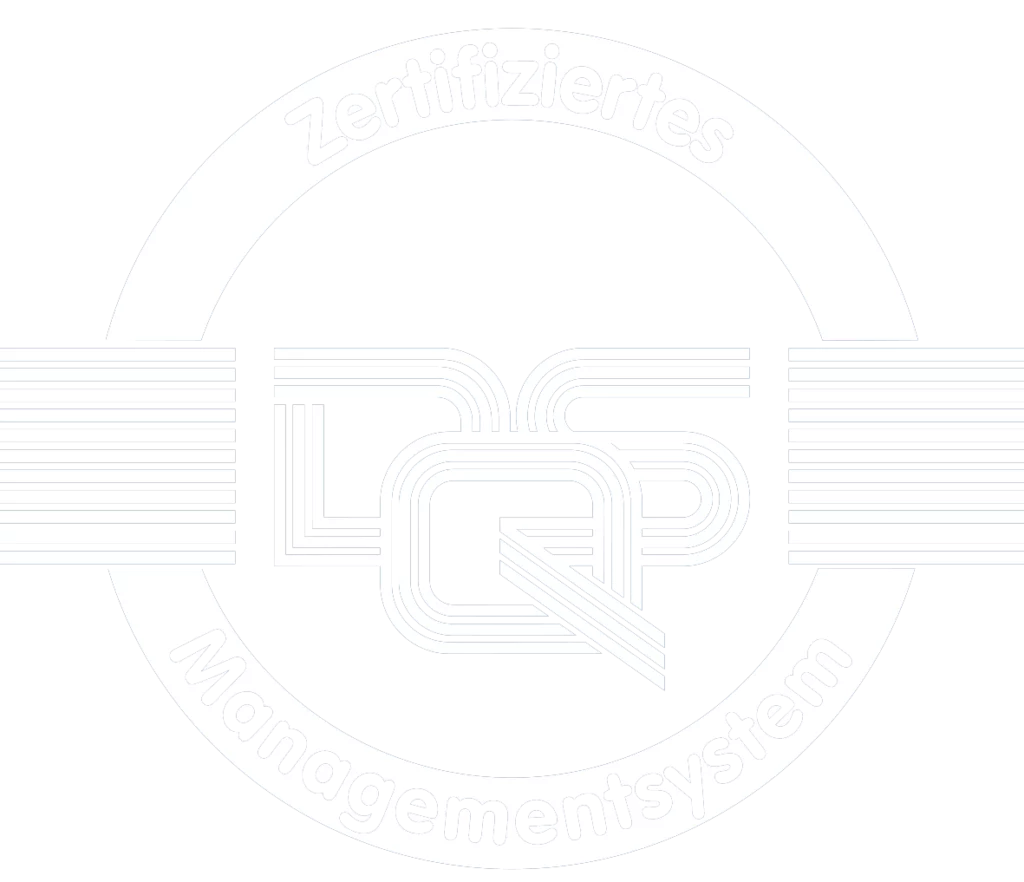Somyeong Park joined his first online Q&A with a Data Scientist having a very precise question in mind. When the speaker mentioned his name, he unmuted himself and spoke up.
“Would any real company,” he asked, “hire a Data Scientist or Analyst with no more experience than a three-month bootcamp?”
For Somyeong, the matter was important. The path that had taken him to that Q&A was that of a remarkably vagarious career, one which had seen him working as a physiotherapist, a military medic and a Christian missionary, sometimes leaving one position only to return to it years later.
Although he’d approached these fields of work with a positive attitude, ultimately none of them had really sparked his passion.
“As a physiotherapist, I worked mainly with patients who were very old,” he says today, with the clarity of hindsight, “and you can’t really ‘cure’ old age. It could get really dispiriting, and it was physically exhausting too. As for the missionary path, my faith was very strong, but I just didn’t identify with the leaders in the community. It seemed to me they mixed their own interests into the holy message, and in the end I decided that was not where I belonged.”

Moving to Germany in 2014 to be with his wife Anne, a kindred spirit he had met during one Christian training camp in Wales, Somyeong found himself in the position of having to reinvent his career with a very mixed bag of skills.
So he started from scratch. He went back to studying for four years, and graduated at the University of Jena in Business Economics. He wished to continue his education with a Masters, but by then he had two children to take care of. He tried to find a job, but an initial close call with KPMG proved deceptive – after graduation he spent a whole six months in the uncomfortable trenches of unemployment.
It was then that he started looking for ways to turn his academic, theoretical preparation in Economics into an array of practical skills that would better respond to the job market. And it was in this manner that he ended up in a Q&A for a Data Science bootcamp – not suddenly, but at the end of a long process of independent research, introducing himself to Python and to tech YouTubers.
Thus we come back to the question that was at the forefront of his mind, and on which his entire future would turn: “Would any real company hire a Data Scientist or Analyst with no more experience than a three-month bootcamp?”

The Data Scientist taking questions – a slim Catalan fellow called Guillem, with a thin beard and a gentle accent – smiled like someone who has heard that question many times before. He reassured Somyeong that coding bootcamps were no longer an anomaly in the tech industry, but an established route to entering the world of tech. In fact, they were often more effective than traditional universities – his own organization, the WBS CODING SCHOOL, had an employment rate of 92% for graduates within the first six months after completing the course.
Somyeong had to consider his options carefully. Returning to university was something he had neither the time nor the money for, particularly now that he had a family to take care of. A bootcamp in Data Science would be a shot in the dark – he had never studied the topic before – but also one that was almost completely paid for by the German Arbeitsagentur.
“In the end,” he says, “what pushed me over the edge was the most pragmatic reason possible. I simply thought about all the difficulties I was having in finding a job, and told myself, ‘things after a bootcamp can’t possibly go worse than they are going now, so why not do it?’ In addition this looked like an interesting field, one that I could explore until my retirement age without ever getting bored.”
And so, in August of 2021, Somyeong signed up for a WBS CODING SCHOOL bootcamp in Data Science. For the next 15 weeks, there would be nothing occupying his mind but that.

“Compared to university, this learning was extremely practical in nature,” he says today, looking back on his experience. “We learned how to do a great deal of things, but we largely skimmed on the theoretical side that would have been at the heart of an academic course. We’d learn how to deploy an algorithm, for example, but not very much about the mathematics behind that algorithm.”
Coding bootcamps are notoriously intensive, as they are designed to cram an enormous amount of learning into just a few months, but Somyeong was able to handle the pressure rather well.
“There was no moment when I felt like I wanted to give up, or turn away and do something else. And I have to say, one positive thing that I discovered about programming, by comparison with some of the things I had done like physiotherapy, is that it gives you clear and immediate feedback.
“A piece of code that I write will either do what I want it to do, or it will return an error message, which in and of itself is already a signpost towards a solution. I think this was my favourite thing about learning this new field.”
What did disappoint Somyeong after the bootcamp was that he was still not getting any job offers – at least not at first.
“It was still really difficult to find employment, so I asked the bootcamp’s Career Services to review my CV. Their agent took one look at the document, and told me the truth without mincing words – my CV was absolutely terrible! That’s why I was having so much trouble getting anywhere. She turned that document completely inside out, and after that, finally, I started getting a lot of interviews.”

Ironically though, the offer for the job he holds today did not come by applying for it.
“My wife was at the park, chatting with some of her friends. She mentioned in the conversation that I had completed this bootcamp, and one of her friend’s husbands exclaimed ‘Wait, you know a Data Scientist looking for a job? My company happens to need a Data Scientist right now!’ That meeting happened by luck, but I would never have been in a position to benefit from that luck if I had not worked and improved my skills beforehand.”
Somyeong now works as a Data Scientist for Intilion, a company making batteries and battery management systems. “I am working at the R&D department and developing some new algorithms for them. It’s kind of a laboratory here, and I like that, because I’ve always wanted to keep on studying. I want to always stay curious and keep trying new things that will keep me from being bored. The salary is amazing too – I’ve never made so much at my previous jobs!”
Before I let him go, I ask Somyeong a slight variation of the same question he himself asked at that Q&A, more than one year ago: can you really learn Data Science at a professional level with just a three-months’ bootcamp?
“What I realized,” he says, “is that it depends less on the curriculum itself than on your motivation. The main thing that the bootcamp did for me was to help me get ‘over the hump’, so to speak, and actually enter the world of Data Science and start practicing it. That’s something more important than just ‘learning how things work’.
“I spent several months after the bootcamp just honing my skills, and this was a really important time in my development. Overall yes, I think it’s possible to learn to a professional level in such a short time-frame, but you have to be driven. The bootcamp gave me some sparks – but stoking them, turning them into a fire within me and making that fire strong, that was something that always depended on me.”
Somyeong Park graduated from the WBS CODING SCHOOL Data Science bootcamp in December 2021, and works as Data Scientist at Intilion.






